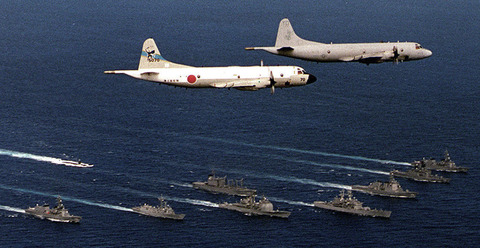Brinkmanship in the South China Sea

Few issues are more important to Asia than the free flow of navigation through the South China Sea, a channel for some $5 trillion in annual trade. And no threat to that trade is as grave as China’s claim to “indisputable sovereignty” over fully 90 percent of the sea. It is no surprise that President Obama and several other leaders were giving the issue high priority this week during back-to-back summit meetings in the region.
Regrettably, there is as yet no sign that these discussions will make progress on resolving the dispute, which many fear could get out of hand. A big reason is China’s refusal to even discuss the issue in multinational talks or a judicial proceeding.
China ratified the 1982 United Nations Convention on the Law of the Sea, guaranteeing unimpeded passage on the high seas for trade, fishing and oil exploration. But in recent years, China has asserted greater control by turning seven obscure reefs and rocks into more substantial islets, some big enough to hold military bases, and claiming jurisdiction of the waters around them. This has effectively rewritten the treaty and put China at odds with its neighbors, including the Philippines and Vietnam, which assert similar claims.
In Manila on Wednesday, Mr. Obama strongly reiterated acall for China to halt construction and military activities on and around the islands. Some other countries have also built up disputed reefs, but none has been as aggressive as China. On Friday, China’s top admiral, Wu Shengli, said his forces had shown “enormous restraint” in the face of American provocations and were prepared to “defend our national sovereignty.”
The United States has taken a neutral position on the specific claims, but Mr. Obama has defended the right of free navigation in the South China Sea, encouraged a peaceful resolution of the dispute and reinforced ties with countries that fear being bullied by Beijing. In Manila, he sent an unmistakable message of support by announcing plans to spend an additional $250 million over the next two years to bolster the naval capabilities of the Philippines, Indonesia, Malaysia, Vietnam and Japan.
Twice recently, Mr. Obama also challenged Beijing by sending a naval destroyer and then two B-52 bombers to transit waters and airspace claimed by China. But experts for Lawfare, a legal blog, say the moves were executed in a confused way, muddying the message and the legal principle.
The United States and others have every right to send their ships and planes across the South China Sea. Of great importance now is a peaceful resolution of the controversy. Last month, an international arbitration court agreed to hear a case in which the Philippines is challenging China’s sweeping claims. Indonesia and Vietnam have raised the possibility of doing the same thing, and Mr. Obama has endorsed this arbitration process.
Although China has refused to participate in the case, it may be forced to rethink its approach if it loses in court. Asian leaders, at the East Asia summit meeting in Malaysia this weekend, could make an important contribution by endorsing the Philippine case. They also need to think creatively about a diplomatic resolution that could start with negotiating fishing rights and then rights to oil and gas resources.
No comments:
Post a Comment
Comments always welcome!